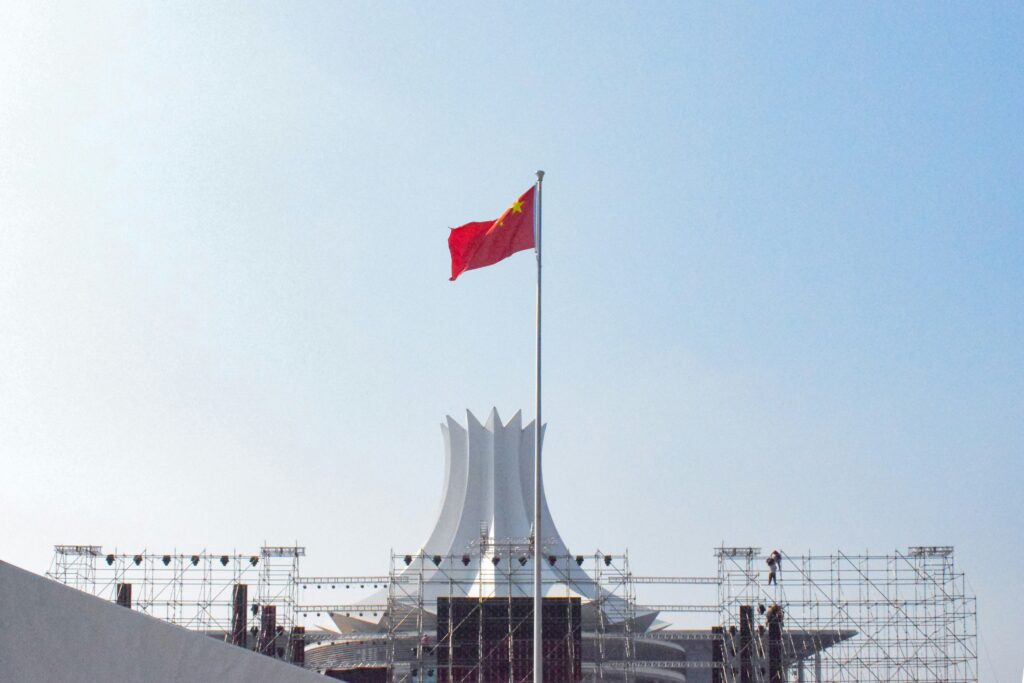Beijing has announced a significant escalation in its trade dispute with Washington, revealing plans to impose a 34% tariff on all U.S. imports starting April 10. This response directly follows the United States’ decision to implement similar tariffs on Chinese products earlier this week. With the existing duties still in place, the total tariffs on U.S. exports to China could now surpass 50%, marking a sharp increase in trade tensions between the two economic giants.
China Denounces U.S. Tariff Strategy
China’s Ministry of Commerce has strongly condemned the United States’ actions, describing them as “unilateral” and “disruptive.” In a formal response, Beijing lodged a complaint with the World Trade Organization (WTO), arguing that the U.S. tariffs violate international trade laws and undermine the stability of global trade systems. Chinese officials stressed that the new measures would not only hurt bilateral trade but also risk damaging the wider international economic order.
The WTO complaint marks an important diplomatic move as China seeks to challenge Washington’s stance within the international trade framework. As the two nations continue their economic showdown, global markets are feeling the ripples of the intensifying dispute.
China Tightens Export Controls and Sanctions
In addition to the new tariff rates, China is taking further steps to strengthen its economic position. Beijing is tightening export controls on rare earth minerals, including samarium and gadolinium. These critical materials are vital for high-tech industries such as electronics, aerospace, and medical imaging, giving China significant leverage over U.S. industries that rely on these resources.
China has also halted poultry imports from two major U.S. companies, citing repeated violations of its food safety regulations. This move highlights the ongoing friction between the two countries on various trade-related issues. Furthermore, 27 U.S. companies have been added to China’s updated sanctions and control lists, with some facing strict export bans on dual-use goods that can be used for both civilian and military purposes. Notable companies on this list include High Point Aerotechnologies and Universal Logistics Holding, further complicating the trade environment for U.S. businesses.
Earlier this year, China also raised tariffs on several other U.S. exports, including coal, liquefied natural gas (LNG), agricultural machinery, and large-engine vehicles. These cumulative measures have caused concern in sectors that rely heavily on the Chinese market.
Global Markets React to Escalating Tensions
The escalating trade war between the U.S. and China has sent shockwaves through global financial markets. Investors have reacted nervously to the increasing uncertainty surrounding the trade relationship between the two largest economies in the world.
The U.S. stock market saw substantial losses, with the S&P 500 falling 4.8% and the Nasdaq 100 dropping 5.4%. These declines marked the steepest losses for both indices since the COVID-19 market crash in 2020. European markets followed suit, with Germany’s DAX falling nearly 5%, the UK’s FTSE 100 losing 4.3%, and France’s CAC 40 dropping 4%. U.S. futures also pointed downward, with the S&P 500 futures falling over 3%, suggesting further losses ahead.
Industries Most Affected by the Trade War
Several industries are already feeling the impact of the renewed trade war between the U.S. and China. Sectors that rely heavily on exports to China, such as pharmaceuticals, agriculture, and energy, are expected to face the most significant challenges. These industries could see rising costs and reduced demand for their products as a result of the escalating tariffs and trade restrictions.
For instance, the agricultural sector in the U.S., which has been one of the largest beneficiaries of exports to China, is now facing heightened challenges as Chinese tariffs on farm products increase. Similarly, U.S. energy companies, which rely on Chinese demand for coal and LNG, are already experiencing the effects of higher tariffs, which could lead to reduced export volumes.
Global Economic Uncertainty
As the trade war between the U.S. and China intensifies, the broader global economy is bracing for more uncertainty. The increasing tariffs and trade restrictions between the two countries not only disrupt bilateral trade but also have the potential to affect global supply chains, pricing, and international investments. In response to these developments, countries and businesses around the world will need to adjust their strategies to mitigate the effects of the ongoing trade conflict.
